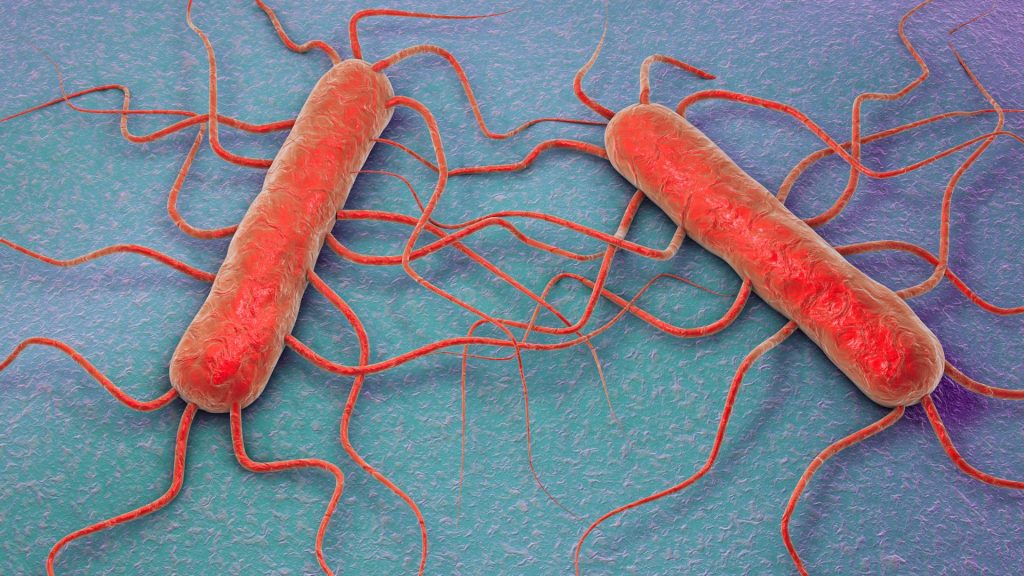Boar’s Head Listeria Lawyer | Florida Listeria Outbreak Attorney
Boar’s Head Listeria Outbreak 2024: Filing a Personal Injury or Wrongful Death Claim in Florida
The Centers for Disease Control and Prevention (CDC) is currently urging the public to avoid eating certain deli meats, sold under the Boar’s Head brand, due to a significant listeria outbreak that has already resulted in 57 hospitalizations and 9 tragic deaths across 18 states, including Florida. This outbreak, now the largest of its kind since 2011, has raised serious concerns about food safety and the need for vigilant precautions.
What is Listeria?

Listeria monocytogenes is a type of bacteria that can cause a serious infection known as listeriosis. What makes listeria particularly dangerous is its resilience and ability to thrive in cold environments, such as your refrigerator. It can contaminate a wide range of foods but is most commonly found in deli meats, soft cheeses, and unpasteurized dairy products.
Listeria is not just a threat to those who consume contaminated products. It can easily spread through contact with contaminated surfaces, such as countertops, cutting boards, and even meat slicers. This means that simply having a contaminated product in your kitchen could put you at risk. The bacteria can transfer from surfaces to your hands, and eventually to your food, making it essential to maintain a clean kitchen environment.
Who Is Most at Risk For Listeriosis?
While listeriosis can affect anyone, certain groups are more vulnerable:
- Pregnant women: Listeria can cause miscarriage, stillbirth, or severe infection in newborns.
- Older adults (65+): The immune system weakens with age, making it harder to fight off infections.
- People with weakened immune systems: This includes individuals with chronic illnesses such as diabetes, cancer, or HIV/AIDS.
If you fall into any of these categories, the CDC advises avoiding deli meats altogether unless they are heated to an internal temperature of 165°F, which can kill the bacteria.
Symptoms of Listeriosis: What to Watch For
Listeriosis can be difficult to detect early because its symptoms often mimic those of other illnesses. According to the FDA, symptoms can take up to 10 weeks to appear after exposure and may include:
- Fever
- Muscle aches
- Fatigue
- Gastrointestinal symptoms (nausea, diarrhea)
In more severe cases, the infection can lead to:
- Stiff neck
- Headache
- Confusion
- Loss of balance
- Seizures
Pregnant women may experience mild, flu-like symptoms but still risk severe outcomes for the unborn child.
The Ongoing Recall: What You Need to Know

As the investigation into this listeria outbreak continues, the CDC and the Food and Drug Administration (FDA) have issued recalls on various deli meats and related products. These items often have a long shelf life, so it is crucial to check your kitchen for any recalled products immediately. If you find any, dispose of them safely to prevent cross-contamination.
The recall includes Boar’s Head Strassburger Brand Liverwurst produced between June 11, 2024, and July 17, 2024. These products have a 44-day shelf life, with sell-by dates ranging from July 25, 2024, to August 30, 2024. The affected items include 3.5-pound loaves in plastic casing as well as various weight packages sliced in retail delis.
In addition to the liverwurst products, Boar’s Head has also recalled all deli products, including pre-packaged deli items, that are still within their shelf life from the same establishment. Consumers should check their refrigerators for any products labeled with “EST. 12612” or “P-12612” inside the USDA mark of inspection. If you find any of these products, it is crucial to dispose of them immediately to prevent potential contamination and reduce the risk of listeriosis.
Bugs, Mold, & Mildew Found in a Boar’s Head Plant Linked To Outbreak
The recent discovery of bugs, mold, and mildew in a Boar’s Head processing plant linked to the deadly listeria outbreak adds another layer of concern for consumers. These unsanitary conditions can lead to severe contamination, putting countless individuals at risk. Companies may be held liable for failing to maintain proper hygiene standards, which directly contributes to the spread of dangerous pathogens like listeria. When a trusted brand like Boar’s Head is involved, the implications are even more significant, as consumers expect and rely on high safety standards. This breach of trust not only jeopardizes public health but also opens the door to potential legal action.
If you or a loved one has been impacted by this outbreak, don’t hesitate to reach out to us at 305-638-4143 for a free consultation to discuss your legal options.
Filing a Personal Injury or Wrongful Death Claim in Florida

If you or a loved one has been affected by the listeria outbreak, it’s important to understand your legal rights and the process involved in filing a personal injury or wrongful death claim in Florida. These types of claims are designed to help victims and their families seek compensation for the harm caused by another party’s negligence, such as a food manufacturer or distributor.
Listeria Personal Injury Lawsuits
In Florida, a personal injury claim can be filed when an individual suffers harm due to the negligent or wrongful actions of another party. In the context of a listeria outbreak, this could involve contamination due to unsanitary conditions at a food processing facility, improper handling of food products, or failure to properly recall and warn consumers about contaminated products.
To successfully file a negligence claim, the following elements typically need to be proven:
- Duty of Care: The defendant (such as a food manufacturer) owed a duty of care to the plaintiff (the victim). In this case, the duty would be to ensure that food products were safe for consumption.
- Breach of Duty: The defendant breached that duty by failing to take reasonable steps to prevent contamination or by neglecting to recall contaminated products in a timely manner.
- Causation: The plaintiff must show that the defendant’s breach of duty directly caused their illness or injury. This often involves medical evidence linking the listeria infection to the contaminated product.
- Damages: The plaintiff must demonstrate that they suffered damages as a result of the injury, which could include medical expenses, lost wages, pain and suffering, and other related costs.
Listeria Product Liability Claims
A victim may also file a claim for strict product liability under Florida law. Product liability allows a victim to recover for damages even if there is no negligence proven. Under Florida Law, a jury may determine that a product is defective, and therefore a manufacturer, distributor, or other participant in the stream of commerce is liable for damages if the product failed to meet reasonable consumer expectations for safety.
Listeria Wrongful Death Lawsuits
If a loved one has tragically passed away due to a listeria infection, a wrongful death claim may be filed by the surviving family members. In Florida, wrongful death claims are governed by the Florida Wrongful Death Act, which allows certain relatives, such as spouses, children, and parents, to seek compensation for their loss. The damages in a wrongful death claim can include:
- Medical Expenses: Costs incurred for the treatment of the deceased’s illness before their passing.
- Funeral and Burial Expenses: Reasonable costs for laying your loved one to rest.
- Loss of Support and Services: Compensation for the loss of financial support, companionship, guidance, and protection that the deceased provided.
- Mental Pain and Suffering: Compensation for the emotional distress and grief experienced by the surviving family members.
In both personal injury and wrongful death claims, it’s crucial to act quickly. Florida law imposes a statute of limitations, which is the timeframe within which you must file a lawsuit. For personal injury and wrongful death claims, this period is generally two years from the date of injury or the death.
Who Can Be Held Liable For a Listeria Outbreak Injury or Death?

When a listeria outbreak occurs, determining who is legally responsible is a critical step in pursuing a personal injury or wrongful death claim. Liability for listeria-related illnesses can extend to various parties involved in the production, distribution, and sale of contaminated food products.
Food Manufacturers and Processors
The primary responsibility for preventing listeria contamination lies with food manufacturers and processors. These companies are obligated to follow strict health and safety regulations to ensure that their products are free from harmful bacteria like listeria. This includes maintaining clean facilities, properly sanitizing equipment, and following safe food handling procedures. If a company fails to uphold these standards, resulting in contaminated products entering the market, they can be held liable for any resulting illnesses or deaths.
Distributors and Suppliers
Distributors and suppliers play a key role in the food supply chain, ensuring that products move from manufacturers to retailers. If these parties fail to properly store or transport food products in a way that prevents contamination—such as maintaining appropriate temperatures or avoiding cross-contamination—they may also be held liable for any harm caused by listeria.
Retailers and Delis
Retailers, including grocery stores, delis, and other food sellers, are responsible for ensuring that the products they offer are safe for consumption. This includes properly storing food, maintaining clean environments, and removing recalled products from shelves promptly. If a retailer continues to sell contaminated products after a recall has been issued or fails to maintain sanitary conditions in their food preparation areas, they could be held liable for any resulting listeria infections.
Product Manufacturers and Labelers
In some cases, liability may also extend to companies responsible for labeling and packaging food products. If the labeling is misleading or fails to include necessary warnings about potential contamination risks, consumers may be unknowingly exposed to dangerous products. In such situations, these companies could be held accountable for failing to provide adequate information to protect consumers.
Third-Party Vendors and Contractors
Sometimes, third-party vendors or contractors are involved in the food production process, such as those responsible for cleaning and sanitizing equipment, or companies that supply ingredients. If their actions or negligence contribute to contamination, they too can be held liable.
It’s important to recognize that liability for a listeria outbreak may not rest with just one party. Often, multiple entities are involved, each contributing to the conditions that allowed the contamination to occur. An experienced personal injury and wrongful death attorney can help identify all responsible parties and pursue claims against each to maximize the compensation available to victims.
If you or a loved one has been affected by the recent listeria outbreak, contact us today at 305-638-4143 to learn more about how we can help you pursue a claim against those responsible.
Contact Our Florida Listeria Outbreak Lawyers For a Free Consultation

- Free Consultation: We offer a free, no-obligation consultation to discuss your case and explore your legal options. During this consultation, we will assess the details of your situation, provide you with a clear understanding of your rights, and outline the steps we can take together to pursue justice.
- Experience: With millions recovered in personal injury and wrongful death cases throughout Florida, our attorneys have the expertise needed to navigate the complexities of listeria-related claims. Our firm has a proven track record of holding negligent parties accountable, and we are committed to securing the best possible outcomes for our clients. Click here to see some of our past results.
- Dedicated Support: We purposely maintain a small caseload to ensure that each client receives personalized attention and dedicated support. This means you won’t be just another case number—we will treat your case with the importance it deserves. You will have direct access to your attorney whenever necessary, ensuring that you are informed and involved every step of the way.
- Contingency Fee Basis: We work on a contingency fee basis, which means you won’t pay any attorney’s fees unless we win your case. This approach allows you to focus on your recovery without the added stress of upfront legal costs. We believe that everyone should have access to quality legal representation, regardless of their financial situation.
Our law firm specializes in personal injury cases, including car accidents, truck accidents, motorcycle accidents, medical malpractice, cruise ship injuries, slip and fall accidents, negligent security, and wrongful death claims. Our experienced legal team is dedicated to serving clients throughout the state of Florida, including Miami, Hollywood, Fort Lauderdale, Aventura, Coral Gables, Kendall, Hialeah, Homestead, West Palm Beach, Orlando, Tampa, Jacksonville, and other surrounding areas.
If you or a family member has suffered due to this listeria outbreak, contact Flanagan & Bodenheimer today for a free consultation. Call us 24/7 at 305-638-4143 and let us help you take the first step toward justice and recovery.












